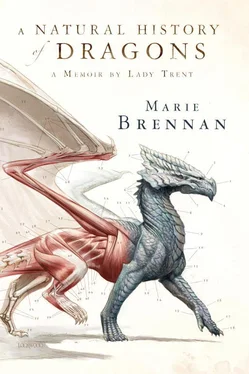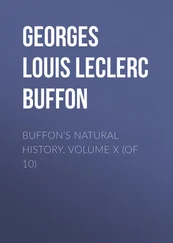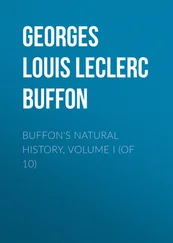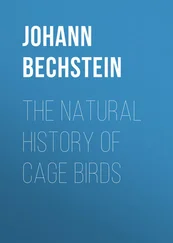It was a rhetorical question; we could both guess perfectly well. Mr. Wilker nodded. “It will be enough to bring him down, yes. Let’s go tell the others.”
The discovery put new life into our limbs, hurrying us back toward the ragged spill of light that was the cave’s entrance. But Mr. Wilker, without warning, dragged me to a halt, one hand going over my lips to muffle my startled question.
A rope dangled down from above. We had brought nothing of the sort with us from the boyar’s lodge.
With his mouth by my ear, Mr. Wilker whispered, “You didn’t see another way out of here, did you?”
I shook my head, hand tightening on the dying torch. The passage might continue beyond the dirt wall—my guess was that the ground above had collapsed at some point in the distant past, as this whole place lay very near the surface—but that was of no use to us. The only exit was that opening, into the arms of whoever waited above.
It was a mark of our dire situation that I found myself hoping it was the Stauleren smugglers.
Mr. Wilker drew in a deep breath and squared his shoulders. “Stay hidden,” he murmured near-soundlessly, “and snuff out that light. I will go. With any luck, they’ll think I came down alone.”
It was the gentlemanly thing to do. It was also the one thing that might win us the slightest advantage, if only I could think how to use it. Iljish had left us already, diverging toward Drustanev in the hopes of snatching up our money; only Lord Hilford and Dagmira waited above. What use I could be, separate from them, I did not know, but it was worth a try. My jaw tight, I nodded to Mr. Wilker and doused the torch in the dirt.
The drop was not a large one; with jumping, he could have caught hold of the edge and dragged himself out. With the rope’s aid, he was gone from my sight in mere seconds.
From above, I heard muffled voices.
Then a voice, speaking Bulskoi-accented Chiavoran, that I recognized all too well. “We know you are down there. Come out now.”
I kicked myself inwardly as I remembered the horses. If Khirzoff had snared my companions—as I had to assume he had—then he would have seen an extra riderless mount; even the best liar would have been hard-pressed to make him believe I had lain down somewhere for a nap, or fallen over a cliff, or any such thing.
Gritting my teeth, I went forward, and took hold of the rope.
They dragged me up without ceremony and dumped me to the ground. When I climbed to my feet, I saw it was quite as bad as I had feared. Khirzoff had brought with him half a dozen men: the sort of odds that may be entirely manageable in a drunk man’s boast, but which are rather more difficult in real life, especially when the half dozen have guns, and the two gentlemen and two women those guns are pointed at do not. In addition, there was Khirzoff himself—and with him, Gaetano Rossi.
When the man had lain helpless at my feet, I had felt compunctions about the desire to see him dead; now that he stood before me, and my husband was the one lifeless on the ground, I wished with foul, poisonous rage that I had cut his throat while I could. It was scant satisfaction to notice the bruising from Dagmira’s jar, and the discoloration where the chemicals had spilled over his skin.
Our captors looked tired—they must have ridden hard to catch us—but nothing like so exhausted as we were. Khirzoff mostly looked angry. “When I invited you to my lodge, I was considering whether it might suffice to order you out of my lands,” he said. “Had you not been so determined to pry, it might have done. If you had been content to remain ignorant.”
“We would have been suspicious,” I said, too foolish to keep my mouth shut. “That’s why you tried the ridiculous charade with Astimir.”
The boyar shrugged. “Yes—but what could you do? Complain to the tsar? He would not care. Not if all you had were suspicions.”
But now we had proof. Or rather, enough specifics to give the tsar reason to investigate. Theft, smuggling, murder—even if no one cared that the boyar’s scheme was causing the dragons to attack people, the rest would be enough to cause him trouble.
I retained enough sense not to point that out, if only barely. The most likely case was that he had followed with the intention of killing us, but if not, there was no sense in encouraging him.
Lord Hilford said, “You forget, sir, that I am a Scirling peer. And your man there has murdered a Scirling gentleman.” The way he pronounced the word “sir,” it might have been the vilest insult he knew.
Khirzoff seemed entirely unconcerned. “With the feuds between Bulskevo and Scirland? That only gives the tsar more reason to ignore you.”
“Perhaps,” Lord Hilford said, drawing himself up, “but it gives others more reason to pay attention. If anything should happen to me, or to my companions, it will go very hard for you.”
Rossi laughed outright, a harsh, ugly sound. “What if you met with an accident? Chasing around the mountains, trying to pet the dragons—there have been so many attacks lately, after all. Who could be surprised if it ended badly?”
As covers for murder went, that one was unfortunately plausible. And even if the villagers or our families back home could raise suspicion regarding our deaths, it would not do us much good.
I had little hope that it would be any use, but I had to try. “Didn’t your tame chemist there tell you, Iosif Abramovich? All these attacks—you’re causing them yourself. The more you pursue this course, the worse it will get.”
As I feared, Khirzoff only shrugged again. “Dead dragons will attack no one. And we can protect ourselves better than the peasants can.”
He would not keep talking forever; sooner or later, and likely sooner, he would decide to end at least one of his problems by ending us. I glanced toward Mr. Wilker, hoping he might see some way to make use of our firestone discovery to persuade Khirzoff to spare us—but he seemed entirely distracted, squinting into the late afternoon sun.
Late afternoon.
I squinted, too, wrinkling up my face so that our captors might think me about to cry. With my lashes filtering the light, I could make out what Mr. Wilker had seen: a large shape in the air, winging its way home for the night, but too distant to be any threat.
Unless we happened to provoke it.
There are proverbs about frying pans and fires that I might have quoted to myself, but I preferred to adapt a different one to my purposes: better the devil that would attack everyone impartially than the devil specifically looking to kill us. At the very least, it would create chaos, and we might be able to take advantage of that.
Or rather, the others might. What I had in mind to do might leave me in no state to take advantage of anything at all.
I could not let myself think about it; if I did, my nerve might fail me. I simply looked at Rossi and said the first offensive thing that came into my head: “By the way, I burned your notebook.”
Then I hiked up my skirts and took off for the ruins.
For the first few steps, I thought it would do no good. One of the soldiers would just chase me and drag me back, with nothing gained. But then I heard Rossi’s enraged sputtering, which resolved at last into words: “Shoot her!”
Even when you are exhausted beyond any previous experience of the word, adrenaline has the marvelous ability to bring life to your limbs. I ducked and wove through the thin trees, praying desperately that I might make it to the wall where I had found my firestone; the first shot came close enough that splinters rained across my face. It was soon followed by more, and then I flung myself to the ground behind the stone, gasping for air.
Читать дальше












